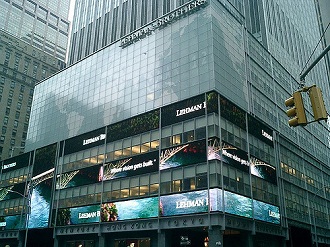Time to Dust Down the Precedents – “Close of Business” May Not Be as Certain as You Thought
Time to Dust Down the Precedents – “Close of Business” May Not Be as Certain as You Thought

What does “close of business” actually mean?
The failure of Lehman Brothers in 2008 not only marked the start of the financial crisis but its administration has kept many a litigation lawyer in work since. The latest case is in the matter of Lehman Brothers International (Europe) (In Administration) v Exxonmobil Financial Services BV [2016] EWHC 2699 (Comm).
Mr Justice Blair has been considering the tricky issue of what does “close of business” actually mean. It is a common term in commercial contracts where notice often has to be served by close of business, but as yet there is no English judicial authority on this point.
The Judge has limited his consideration to close of business in London commercial banks. The case itself concerned the service of a particular type of notice (a Default Valuation Notice under a Global Master Repurchase Agreement). Lehman went into administration on 15 September 2008 on the same day Exxon was notified that it must serve a Default Valuation Notice by close of business on 22 September 2008, which in theory gave it the opportunity to sell and/or value the remaining equities and bonds. Exxon say that it served the Default Notice on 22 September 2008, by fax received at 6.02pm; Lehman said it was only received on 23 September and was therefore invalid. The difference in cash terms between the two dates was in the valuation of the Default Notice, Lehman says that Exxon owes it nearly US$14m and Exxon says Lehman owes it US$8.6m.
The contract did not specify a time when close of business was deemed to occur. Exxon submitted a notice to Lehman’s London office by fax. Unsurprisingly, the fax line was very busy and Exxon struggled to get the fax to go through. Eventually, it started transmitting and Exxon’s fax machine said the transmission time would result in the whole fax being received by 6.02pm. Lehman said it received nothing and that the fax number used was incorrect. For those of you who remember the pain of using fax machines, willing important notices to arrive before a deadline, this scenario will come as no surprise.
The Court heard evidence from on what “close of business” should mean. Lehman argued it should be 5pm, whilst Exxon scoffed at this and said no self-respecting London-based commercial bank would close at 5pm and 7pm was much more realistic.
Blair J’s view appears to be that the context in which the term “close of business” can differ. Whilst it is a common term used in many contracts, in the present case the intent was to impose a definitive cut off time for service of a notice. It would have been possible to do that by reference to a time period, rather than using what turned out to be an ambiguous phrase. The fact that the contract had used this term of art rather than state a time gave it a flexibility and therefore trying to pin it down to a precise time of receipt made little commercial sense. The Judge accepted that it was Lehman’s burden of proof to establish when close of business occurred. As Lehman had failed to adduce any admissible evidence on this point, the Judge found in favour of Exxon – who had adduced evidence, which said in the modern world commercial banks closed at about 7pm.
The Judge did not accept that a bank like Lehman could rely upon what might be called normal business hours. It was not acceptable to compare the hours which your local high street bank kept its doors open to the mighty behemoth that Lehmans used to be, or even the hours worked by investment bankers and commercial lawyers! Blair, J therefore made a finding of fact that the notice was received by Lehman before close of business on 22 September 2008.
Lessons for us all
The take-home message from this case has to be if you want to rely upon a deadline in a commercial contract please do specify a time when setting it. Whilst terms of art may offer flexibility they also create an ambiguity which may not be to your advantage if you later try to enforce it.
Contact our commercial dispute resolution experts
If your business is facing the challenge of a commercial dispute or litigation, we can help. Call our lawyers today on 01895 207954 or email commercialdisputes@ibblaw.co.uk.
